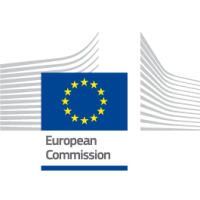
European Commission webinar series on collaborative approaches in special education needs (SEN)
This webinar series explored strategies for identifying, understanding, and supporting neuroatypical and special needs students, particularly those aged 15 to 21.
Webinar information
Description
The webinar series highlighted the importance of teacher-parent collaboration and offered practical tools to address common barriers like communication gaps. Attendees learnt how to create individualised education plans, implement parent training, and align activities between home and school to better support students and ensure their inclusion in the learning environment.
Watch or re-watch webinar 1
Watch or re-watch webinar 2
Download the presentations used in webinar 1 and webinar 2
Learning objectives
In this webinar series, you will:
Engage families in supporting neuroatypical students: Explore effective strategies for involving families in the emotional and relational support of neuroatypical students, empowering them to collaborate closely with educators and support staff.
Strengthen teacher-parent collaboration in special education needs (SEN) support: Discover the importance of teacher-parent collaboration within special education settings and learn practical approaches to developing individualised education plans, parent training, and coordinated support between home and school to enhance educational outcomes for SEN students.
Certification details
This webinar series on collaborative approaches in special education needs (SEN) consists of two webinars and an activity that you can complete in your own time in between the two webinars.
Please find the timeline below and try to keep the following dates in mind to regulate your learning:
Webinar 1
22 November at 16:00-17:00 CET
Webinar 2
26 November at 16:00-17:00 CET
Time to submit the activity
From 26 November at 17:00 CET to 27 November at 23:59 CET
To receive a certificate, you will need to:
• Join the two live webinars
• Complete the activity
About the speakers
Additional information
-
Language:English
-
Target audience:TeacherStudent TeacherHead Teacher / Principal
-
Target audience country:
-
Target audience ISCED:Primary education (ISCED 1)Lower secondary education (ISCED 2)Upper secondary education (ISCED 3)



